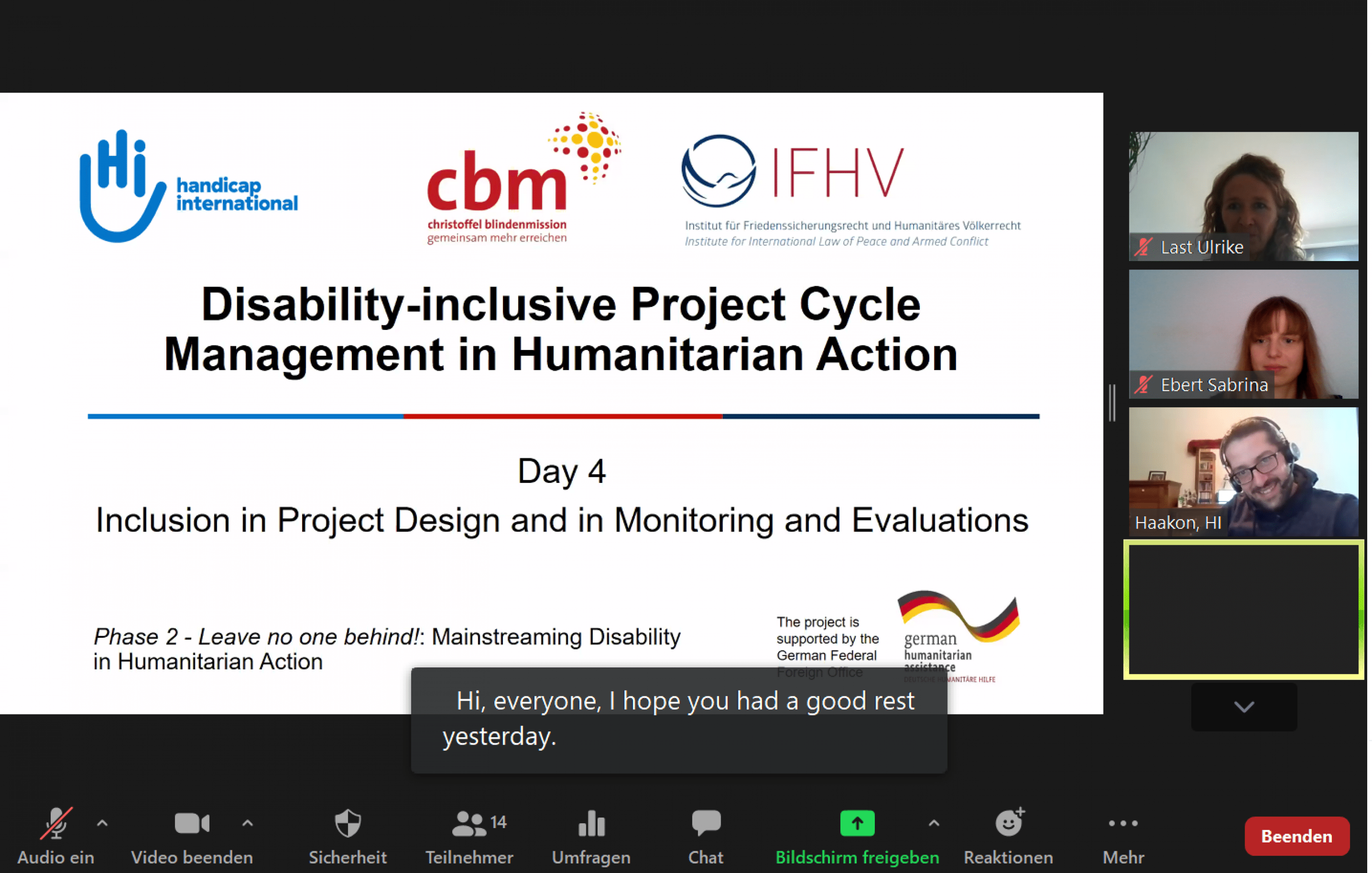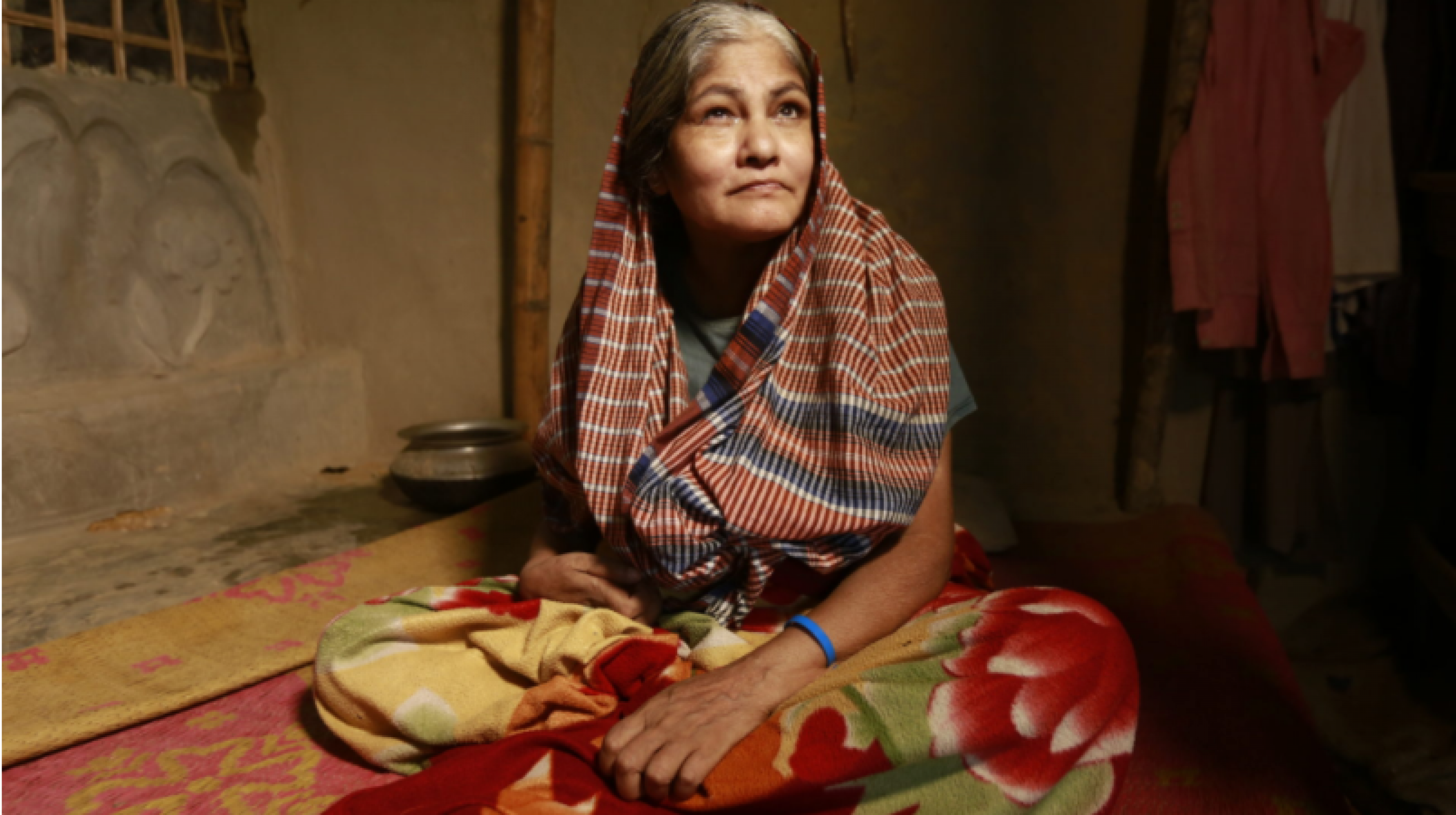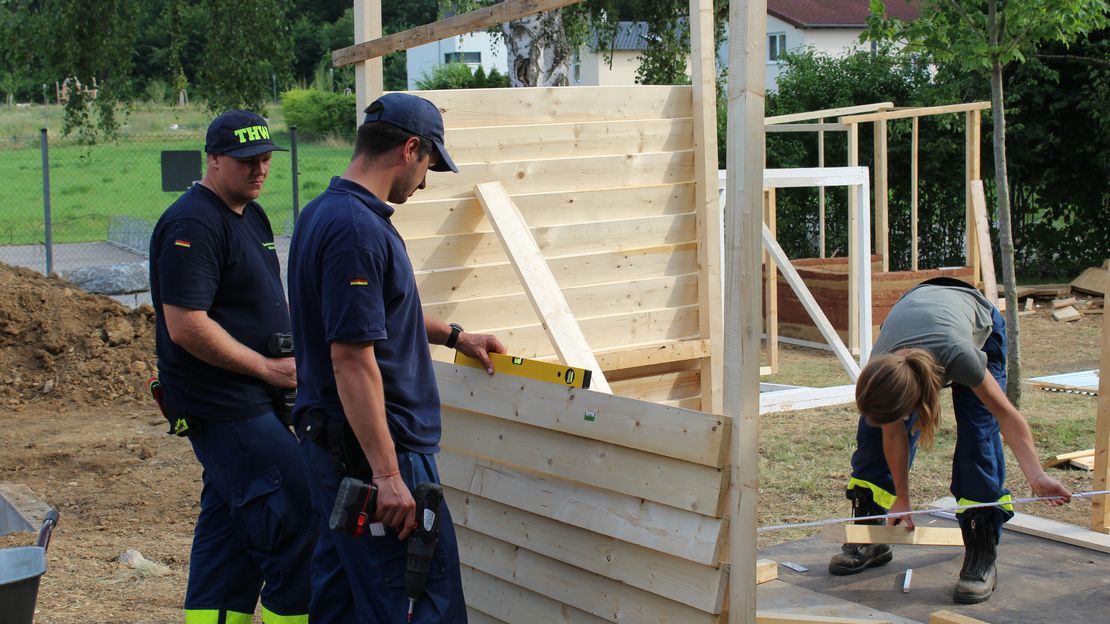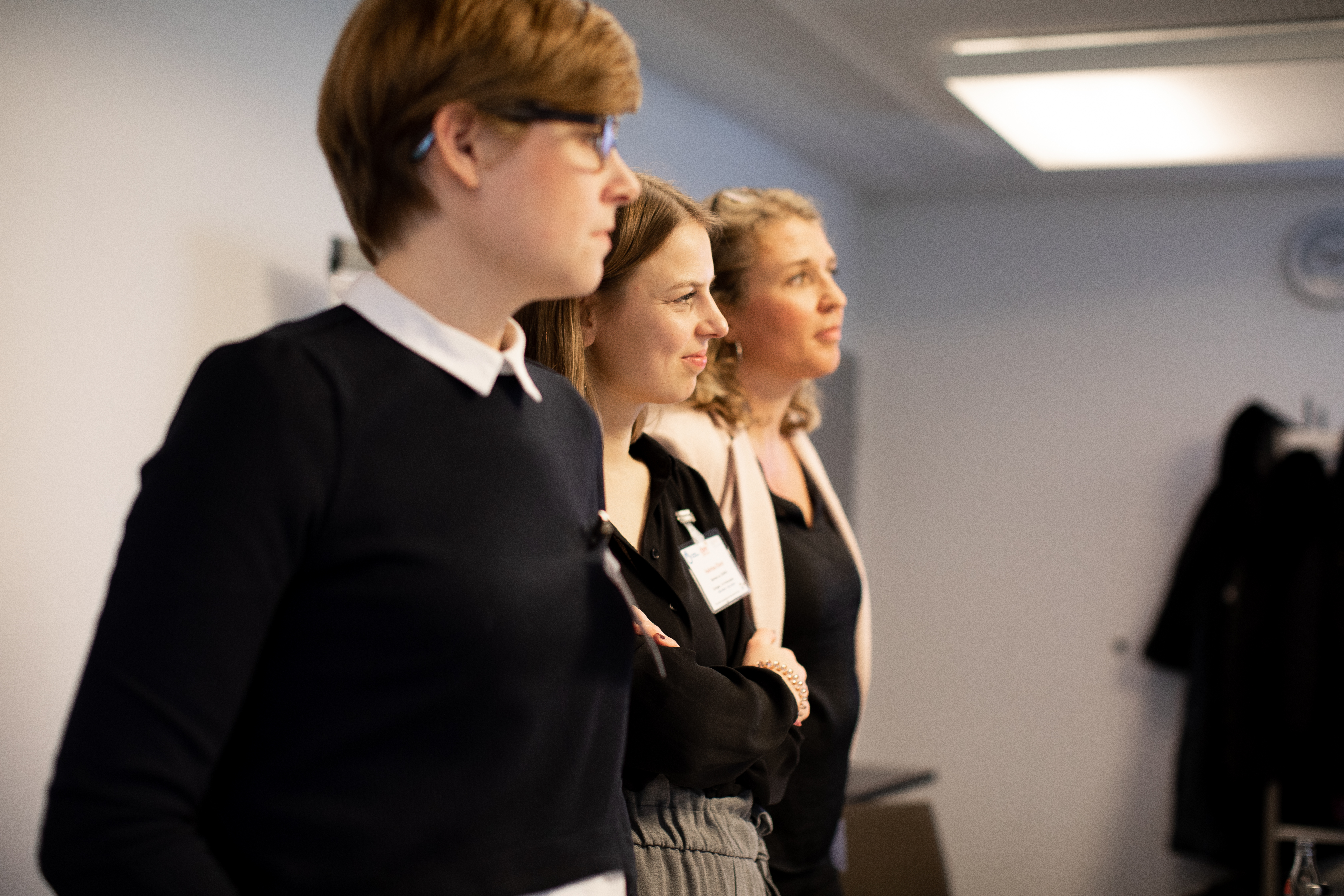
© Laura Thomas/ HI
Result 2 - Capacity building
Background
For deeper awareness and capacity building of German humanitarian organisations and their local partners, our project offered trainings in addition to technical support.
An online assessment in 2018 identified a general need for introductory courses on disability inclusion in project cycle management, Monitoring & Evaluation (MEAL), data collection, including Washington Group Questions, and more in-depth trainings on Disaster Risk Reduction (DRR) and building partnerships with organisation of persons with disabilities (OPDs).
From Analogue to Digital Trainings
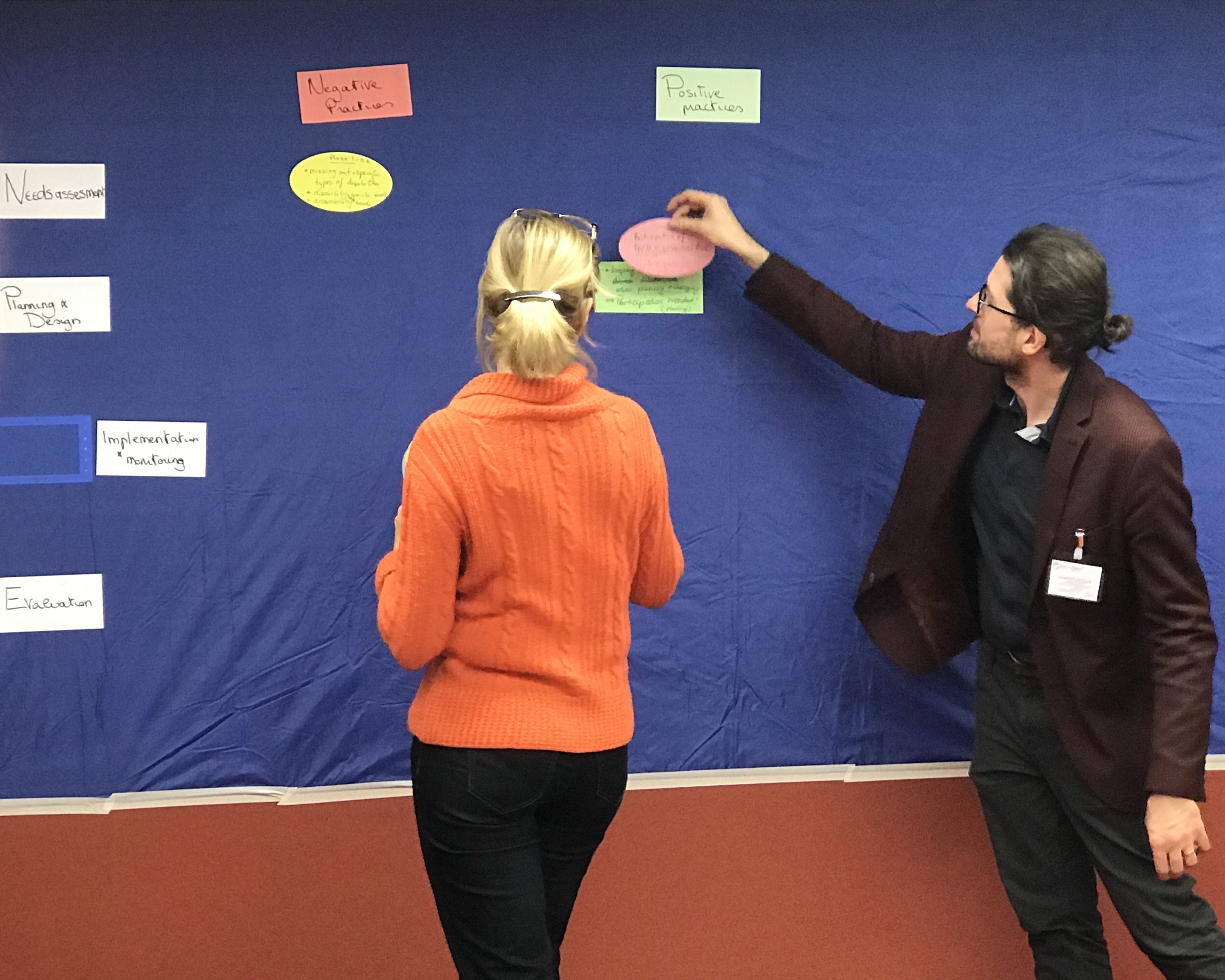
© HI
Project coordinator Haakon Spriewald with a participant of the "Disability-inclusive Project Cycle Management" training in Berlin in 2019
In autumn 2019, the first face-to-face trainings on "Disability-inclusive Disaster Risk Reduction", hosted by our partner organisation Christian Blind Christoffel Blindenmission e.V. (CBM), and our "Disability-inclusive Project Cycle Management" started.
With the onset of the global Covid-19 pandemic, we shifted our teaching format to online learning opportunities. In our webinar "Inclusion of Persons with Disabilities in the Humanitarian COVID-19 Response", we discussed with global and local technical experts the new challenges faced by persons with disabilities in humanitarian contexts during the pandemic.
Regional Training East Africa
“The group interaction was very good. It kept the learning experience great. Differen[t] experience from different countr[ies] offered the best learning lessons”
Participant of the virtual East Africa Training 2020
The specific needs of the project’s target group can vary greatly due to different starting points, environmental influences and regional circumstances.
Taking this into account, we designed regional trainings in Phase 2 that focused on East Africa, and Central and Southeast Asian, reaching 29 different organisations. To deliver the content on inclusion and practical application in everyday work, we used a combination of presentations, interactive and accessible group and scenario work.
Regional Training Central and Southeast Asia
“Firstly, it was a great opening of relevant information on disability inclusion for me and I really enjoyed my learned from this training.”
Participant of the Central and Southeast Asia Training in 2021
Our trainings strengthen the understanding of an inclusive humanitarian project cycle. They support participants with identifying entry points to develop their own capacities in their programmes and projects.
A key component of our trainings are the Must-Do Actions of the IASC Guidelines:
- Promote meaningful participation,
- Remove barriers,
- Empower persons with disabilities; support them and humanitarian actors to develop their capacities and
- Disaggregate data to monitor inclusion.
Sector-specific Trainings

© HI
Screenshot of the "Disability-inclusive Primary Health Care" online Training in 2020
Another objective of our project is to mainstream inclusion in different sectors through trainings, such as our "Disabiliy-inclusive Primary Health Care" online training.
Many of the participants already had prior knowledge of inclusion and an average of 6-10 years of work experience in humanitarian action and development cooperation. In addition to the training content, the opportunity to share experiences and best practices was particularly valued.
In total, our project realised five sector-specific trainings for 227 participants from 108 organisations worldwide since 2019.
Our project team members also support external trainings organised by e.g. the German Toilet Organisation e.V. (GTO) and the Verband Entwicklungspolitik und Humanitäre Hilfe (VENRO).
These short inputs provided an introduction to the topic of inclusion of persons with disabilities for training participants.
The photo shows the construction of accessible latrines, which were built during the workshop "Course on Inclusive Sanitation in Emergency Relief" (German source) together with the German Federal Agency for Technical Relief (THW).
Technical support/ Coaching/ In-House Trainings
In order to strengthen the capacities of German humanitarian organisations, the project also offered in-house trainings in addition to technical support. This project activity offered the organisations the opportunity to receive a training adapted to their organisational needs, priorities and structures.
For enquiries please contact us at the following address: LeaveNoOneBehind@deutschland.hi.org
